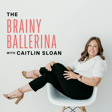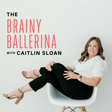
66. The Future of Dance Education with Dance Device Lab Founder Brandon Cournay
In this week’s inspiring episode, I’m joined by Brooklyn-based creative leader and founder of Dance Device Lab, Brandon Cournay. From his unexpected start in a small-town Michigan dance studio to earning a spot at Juilliard and building a career as a professional dancer, choreographer, rehearsal director, executive director and business owner, Brandon shares his multifaceted journey through the dance world.
Key “Pointes” in this Episode
🩰How a musical theater camp unexpectedly launched his dance career
🩰The unique training environment of his childhood studio with over 100 boys
🩰His path to Juilliard and how it reshaped his perspective on dance and artistry
🩰The realities of freelancing in New York and how versatility leads to more opportunities
🩰The mission behind Dance Device Lab and how it empowers dancers nationwide
🩰Why building community and being a kind, versatile human matters as much as technique
🩰Practical advice for young dancers: diversifying skills, exploring life outside the studio, and being a dancer AND something
Brandon also dives into his teaching philosophy, nonprofit leadership insights, and the importance of making live performance more engaging and accessible for today’s audiences.
Connect with Brandon:
WEBSITE: brandoncournay.com
INSTAGRAM: instagram.com/brandon_cournay
DANCE DEVICE LAB WEBSITE: dancedevicelab.com
Links and Resources:
Visit The Ballet Help Desk: https://ballethelpdesk.com/
Get 20% off your first order of ALOHA protein bars: https://aloha.com/BRAINYBALLERINA
1-1 Career Mentoring: book your complimentary career call
Let’s connect!
My WEBSITE: thebrainyballerina.com
INSTAGRAM: instagram.com/thebrainyballerina
Questions/comments? Email me at caitlin@thebrainyballerina.com

